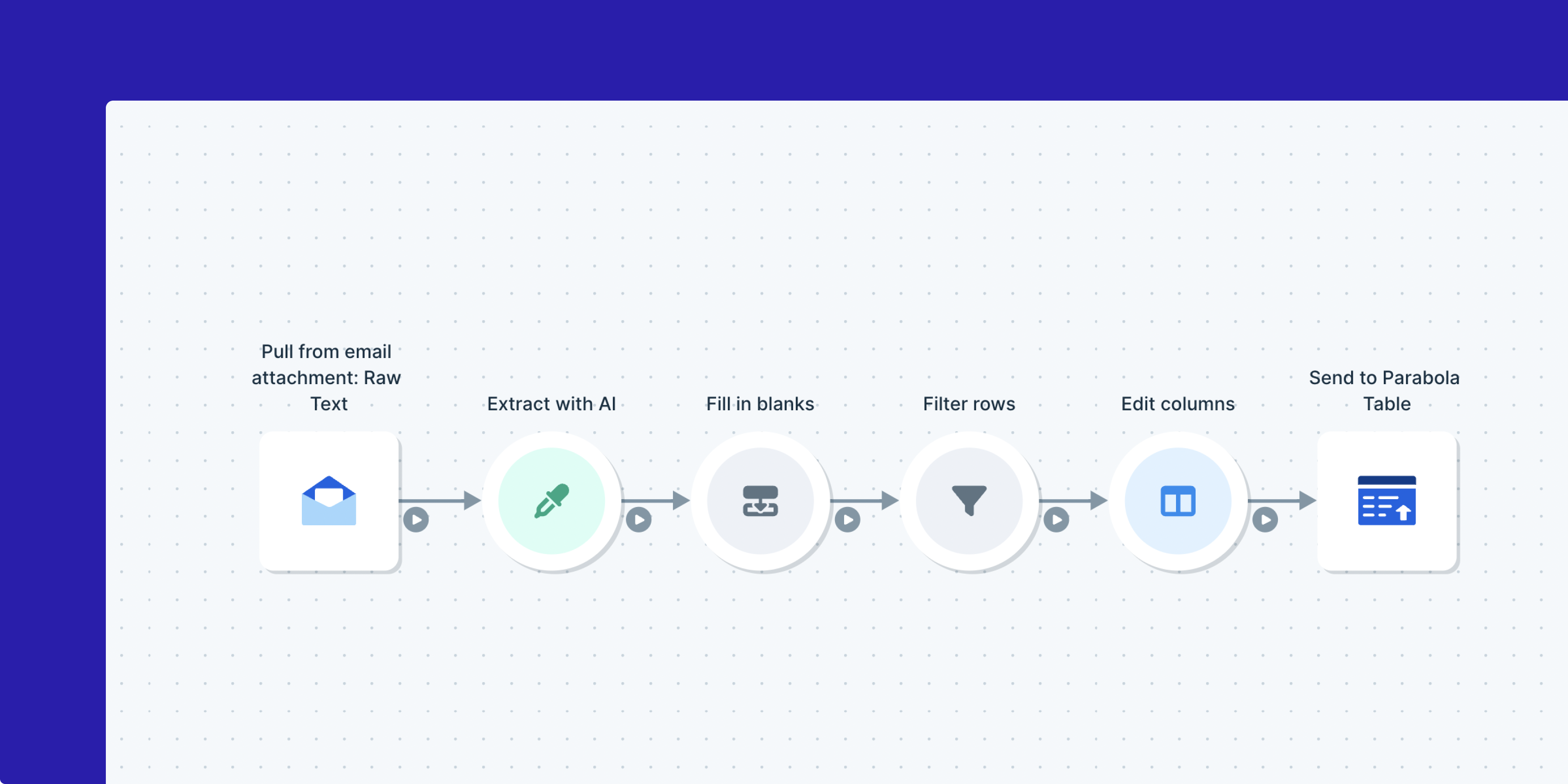Parabola, a San Francisco-based startup that uses AI to help expedite back-office processes, particularly in the logistics and ecommerce sectors, today announced that it raised $24 million in a Series B funding round led by OpenView with participation from strategic investor Flexport alongside Matrix, Thrive, Flexport, Good Friends, Webflow, Otherwise Fund, Abstract Ventures and Merus Capital.
Alex Yaseen, Parabola’s founder and CEO, says that the new capital will be put toward hiring and product R&D. To date, the company’s raised $34.2 million — inclusive of the latest tranche.
“Most software companies struggled in the pandemic shift, but we’ve found success,” Yaseen said. “2023 is the year of the operator, and Parabola is the go-to platform to empower them.”
So what does Parabola do, exactly? Boiled down to basics, the platform applies AI to automate various workflows. Using Parabola, customers can take documents like PDFs, text message logs, images and emails and have Parabola standardize, enrich or categorize them.
For example, given a list of product names, Parabola can categorize them according to specific departments, such as “clothing,” “home goods,” “grocery” and “electronics.” It can also standardize inconsistently-formatted invoices and extract the amount, due date, sender information and the line items from each into a table. And it can analyze Amazon keyword rankings within a specific time frame, enabling ecommerce teams to optimize their product listings.
Yaseen describes Parabola as a “collaborative data tool” for nontechnical users who’d otherwise be stuck with arduous manual processes and spreadsheets.
“Our core differentiator is our ability to be owned directly by an operations team to build solutions to their own problems without getting bottlenecked on data and IT.” Yaseen said. “This enables them to automate workflows that otherwise are too fast-changing for engineers to write code on their behalf.”
Business process automation is a growing trend, with 66% of organizations responding to a recent McKinsey survey saying that they’ve experimented with process automation in one or more business functions. The motivation is cost savings, often. A UiPath survey estimates that businesses can save an average of $1.5 million per year by automating at least a portion of their processes.

Parabola’s workflow automation platform connects apps and automates processes.
Lots of vendors have emerged to meet the large addressable market, unsurprisingly, including so-called integration-platform-as-a-service providers like Zapier, Workato, Tray and Mulesoft as well as internal-tool-building platforms like Retool and Airplane.dev. Retool has done particularly well for itself lately, raising $45 million at a $3.2 billion valuation last July.
Yaseen makes the case that Parabola’s rivals, though — even the well-funded ones — focus less on building logic and more on transferring data between different systems, plus require extensive technical resources to boot.
“Many users choose to stick with their outdated and mundane processes because it’s what they’re familiar with, and they believe that their complex data sets cannot be automated,” he added. “[But] enterprise leaders can no longer exhaust valuable engineering resources on projects that can be achieved otherwise … We’ve built a suite of collaboration features that turn the ‘individual use-case’ into a ‘company use-case,’ allowing operations teams to align on best practices and ultimately build off one another’s work.”
Parabola claims to have clients in a “wide range of industries,” including ecommerce, retail, consumer packaged goods and shipping and logistics. The 30-employee startup’s current customer base stands at just over 500 brands, and Yaseen says that the plan is to expand Parabola’s headcount to 60 people by the end of the year.
Workflow automation startup Parabola raises $24M by Kyle Wiggers originally published on TechCrunch
DUOS





